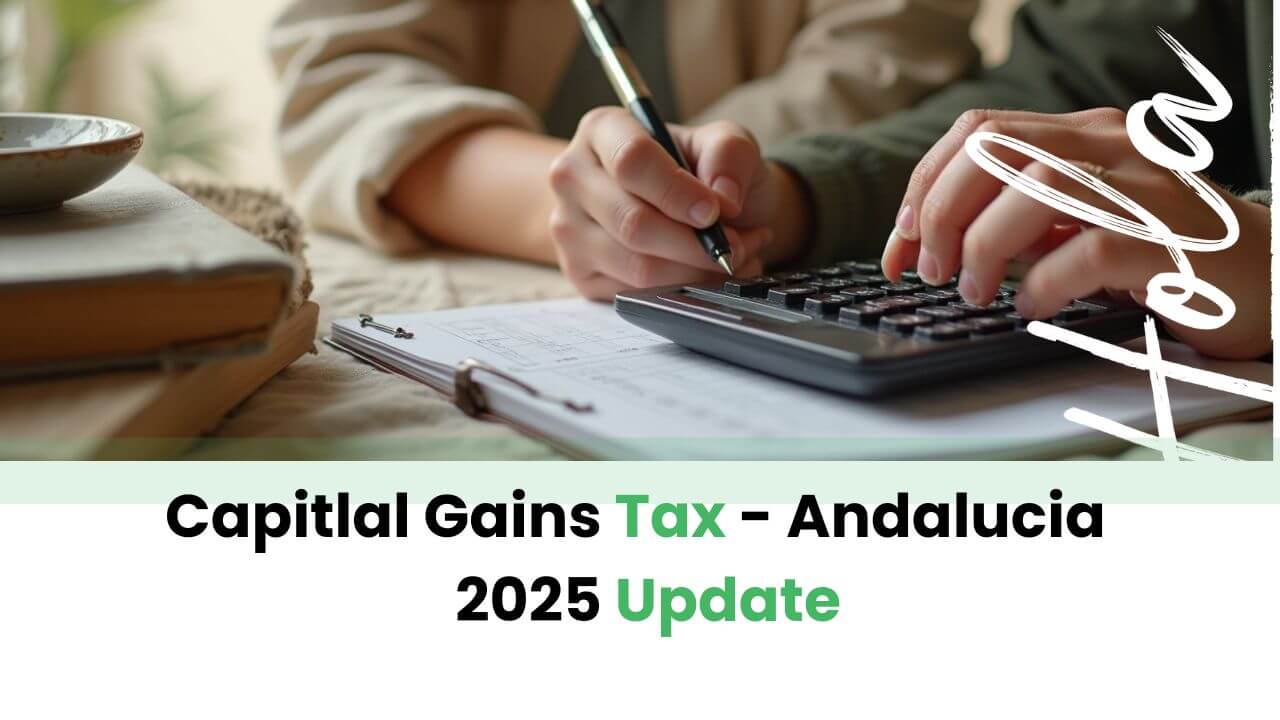Selling a property in Andalucia involves understanding the Capital Gains Tax (CGT) implications to ensure compliance and optimise your financial outcome. This article provides an up-to-date overview of CGT for 2025, detailing when exemptions apply, current tax rates, and essential considerations for both residents and non-residents.
What is Capital Gains Tax?
Capital Gains Tax is levied on the profit realized from selling an asset, such as real estate. In Spain, CGT applies to the difference between the property’s acquisition cost and its selling price. Both residents and non-residents are subject to this tax, albeit under different conditions.
Exemptions from Capital Gains Tax
Certain circumstances allow sellers to be exempt from paying CGT:
- Residents Over 65 Selling Their Primary Residence: If you are a Spanish tax resident aged 65 or older and are selling your main home, you are exempt from CGT, provided you have lived in the property for at least three years prior to the sale.
- Reinvestment in a New Primary Residence: Residents under 65 can avoid CGT if they reinvest the proceeds from the sale of their main home into another primary residence within two years. The exemption applies proportionally to the amount reinvested.
- Properties Purchased Between May 12 and December 31, 2012: Both residents and non-residents can benefit from a 50% reduction in CGT when selling a property acquired during this period.
Capital Gains Tax Rates for 2025
The applicable CGT rates depend on your residency status and the amount of gain:
- Residents:
- Up to €6,000: 19%
- €6,000.01 to €50,000: 21%
- €50,000.01 to €200,000: 23%
- Over €200,000: 27%
- Non-Residents:
- EU/EEA Residents: Flat rate of 19%
- Non-EU Residents: Flat rate of 24%
Additional Considerations
- Withholding Retention for Non-Residents: When a non-resident sells property in Spain, the buyer is required to withhold 3% of the purchase price and pay it to the tax authorities as an advance on the seller’s CGT liability.
- Municipal Plusvalía Tax: Apart from CGT, sellers may be liable for the municipal “Plusvalía” tax, which is calculated based on the increase in the property’s cadastral value during ownership. The amount varies depending on the municipality and the length of ownership.
- Deductible Expenses: Certain costs can be deducted from the capital gain, such as expenses related to the acquisition and sale (e.g., notary fees, legal fees, and real estate agent commissions), as well as investments made to improve the property. Proper documentation of these expenses is essential.
- You should note that any fees charged to a buyer, such as sneaky agents fees are not deductable, therefore costing you as a seller even more!
Conclusion
Navigating Capital Gains Tax when selling property in Andalusia requires a clear understanding of current tax rates, potential exemptions, and additional obligations like the municipal Plusvalía tax. Staying informed about the latest tax regulations and seeking professional advice can help ensure compliance and optimize your financial outcome.
Please note that tax laws are subject to change. For personalized advice tailored to your specific situation, consult with a tax professional familiar with Spanish property taxation.




